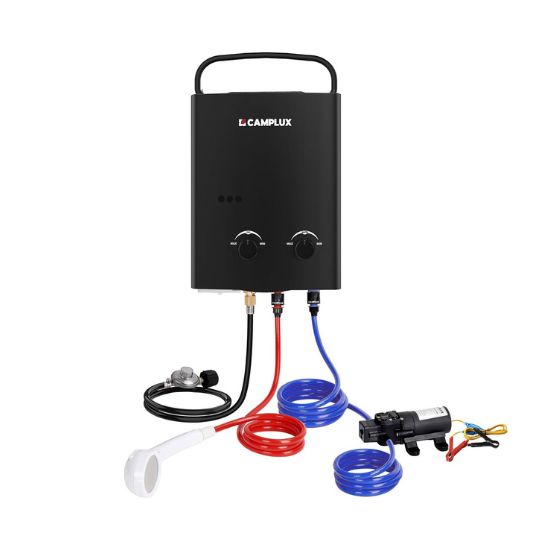Eco-friendly camping practices are essential for preserving the natural beauty of our camping environments and minimizing our impact on the planet. By embracing responsible camping practices, using eco-friendly gear, and choosing low-impact travel to camping sites, we can contribute to a more sustainable camping experience. This article explores key takeaways for eco-friendly camping practices and highlights the importance of environmental consciousness in camping.
Key Takeaways
- Choose environmentally friendly campsites that prioritize sustainable practices and offer green camping amenities.
- Use eco-friendly camping gear, such as reusable items, non-toxic products, and energy-efficient appliances.
- Follow Leave No Trace principles to minimize your environmental footprint and practice responsible camping.
- Support slow travel and immersive experiences that align with eco-friendly camping practices.
- Respect and protect wildlife by observing from a distance and properly disposing of trash to avoid attracting animals.
Responsible Camping Practices
Adopting responsible camping practices is essential for minimizing our ecological footprint while enjoying the great outdoors. By being mindful of our actions, we can ensure that our camping adventures are sustainable and do not harm the environment.
- Travel and Camp on Durable Surfaces: Stick to established trails and campsites. In pristine areas, disperse use to prevent the creation of new trails and sites.
- Minimize campfire impacts by using established fire rings and adhering to fire regulations.
- Practice Leave No Trace principles, ensuring you pack out all trash and leave the campsite as you found it.
By committing to these practices, we not only follow rules but also actively contribute to the preservation of natural habitats and wildlife.
Choosing to camp within designated areas and staying on designated roads are simple yet impactful ways to prevent soil erosion and protect native plants and organisms. It's not just about the rules; it's about respect for nature and commitment to conservation. Let's make sure that future generations can continue to experience the wonder of untouched wilderness.
Eco-Friendly Camping Gear
Embracing eco-friendly camping gear is a pivotal step towards sustainable outdoor adventures. Opting for items such as tents, sleeping bags, and cookware made from sustainable materials not only minimizes environmental impact but also resonates with the ethos of responsible camping.
Investing in high-quality gear that withstands the test of time is not just about durability; it's about making choices that benefit both the planet and your outdoor experiences.
By selecting gear like the Vango Alpha 400 Tent, The North Face Eco Trail 20 Sleeping Bag, and NEMO Tensor Ultralight Insulated Sleeping Pad, you can significantly reduce your environmental impact. Here's a list of eco-friendly camping essentials:
- Tents made from recycled materials
- Sleeping bags with ethically sourced down or eco-friendly synthetics
- Durable and non-toxic cookware
- Reusable water bottles, utensils, and storage containers
These products not only ensure a lower ecological footprint but also promote a circular economy, leading to less waste and more responsible consumption.
Low-Impact Travel to Camping Sites
Traveling to your camping destination with a low environmental impact is as crucial as sustainable camping itself. Carpooling is a great start; it not only reduces carbon emissions but also fosters a sense of community among fellow campers. Investing in a campervan can be a cost-effective and efficient way to get your camping party around, as well as doubling as a place to stay.
Another option, if possible, is to consider public transportation for an even smaller carbon footprint.
Choosing camping sites closer to home not only cuts down on travel emissions but also helps you discover hidden gems in your local area. Exploring less-traveled camping spots not only reduces overcrowding in popular sites but also allows you to experience nature in its quieter, undisturbed state. These practices contribute significantly to preserving the natural beauty and health of our camping environments.
Environmental Consciousness in Camping
The growing trend of environmental consciousness in camping is a response to the need for sustainable outdoor recreation. Camping and RV travel have been identified as activities with significant environmental impact, but with the right practices, this impact can be minimized. Embracing sustainable practices and eco-friendly gear is essential for preserving the natural spaces we cherish.
By adopting low-impact practices, campers can ensure the preservation and long-term sustainability of our natural resources.
Benefits of Environmental Consciousness in Camping:
- Preservation of natural spaces and ecosystems
- Reduced carbon footprint and greenhouse gas emissions
- Protection of wildlife habitats and biodiversity
- Minimization of pollution and soil erosion
- Conservation of water resources
To truly embody environmental consciousness, campers should follow Leave No Trace principles, support slow travel, respect wildlife, and invest in energy-efficient appliances. These actions not only reduce our ecological footprint but also align with the ethos of responsible camping.
Setting Up an Eco-Friendly Campsite
Creating an eco-friendly campsite is all about harmony with nature. Choose a spot where your tent will have minimal impact on the surrounding flora. Look for established sites or durable surfaces like sand or gravel to pitch your tent. This simple choice helps preserve the natural landscape and prevents damage to delicate vegetation.
When it comes to campfires, utilize existing fire rings or spots. This practice not only minimizes land disturbance but also consolidates the impact to areas that have already been used. Additionally, be mindful of your packing choices. Prioritize items made from eco-friendly materials, such as biodegradable camping utensils and sustainable clothing.
By staying at eco-friendly campgrounds, you can significantly reduce your environmental impact and contribute to a more sustainable camping experience.
Here are some tips to ensure your campsite remains as green as possible:
- Use natural light as much as possible to reduce the need for artificial lighting.
- Bring a reusable water container to avoid single-use plastic bottles.
- Pack out all your trash and leave no trace behind.
- Consider using solar-powered gadgets to minimize reliance on batteries or generators.
Choosing Environmentally Friendly Campgrounds
When planning your next outdoor adventure, selecting an environmentally friendly campground is a pivotal step towards a sustainable camping experience. These campgrounds are dedicated to preserving the natural environment and offer amenities that encourage eco-friendly practices among campers.
By choosing a campground with a commitment to sustainability, you support ongoing conservation efforts. Campgrounds that provide eco-friendly features help reduce your carbon footprint and allow you to enjoy nature without the guilt associated with environmental degradation.
Eco-friendly campgrounds typically offer a range of amenities designed to minimize their impact on the environment:
- Recycling and compost stations to manage waste efficiently
- Water conservation methods, such as low-flow fixtures
- Solar-powered systems to harness renewable energy
Embracing these green camping amenities not only lessens your environmental impact but also enriches your camping experience with a deeper connection to nature.
In addition to these amenities, consider the campground's involvement in local conservation initiatives or partnerships with eco-friendly organizations. This can be a testament to their dedication to environmental stewardship. Remember, every choice you make can contribute to a more sustainable future for our planet.
Conclusion
In conclusion, embracing eco-friendly camping practices is essential for minimizing our environmental impact and preserving the natural beauty of our camping environments. By choosing environmentally friendly campsites, using eco-friendly gear, and following Leave No Trace principles, campers can contribute to a more sustainable camping experience. It's important to practice responsible camping, support slow travel, and respect and protect wildlife to ensure that wild spaces remain vibrant and thriving for years to come. The desire for environmental consciousness in camping has significantly increased, especially in response to the COVID-19 pandemic, and it's crucial to continue this momentum for the health of our planet and future generations.
Frequently Asked Questions
How can I practice responsible camping?
You can practice responsible camping by supporting slow travel, respecting and protecting wildlife, choosing environmentally friendly campsites, using eco-friendly camping gear, and following Leave No Trace principles.
What eco-friendly camping gear should I use?
You should use reusable items, non-toxic products, and energy-efficient appliances as eco-friendly camping gear.
How can I travel to camping sites with low environmental impact?
You can travel to camping sites with low environmental impact by supporting low-impact travel practices and minimizing waste generation.
Why is environmental consciousness important in camping?
Environmental consciousness in camping is important for protecting wildlife habitats, minimizing pollution, conserving water resources, and reducing greenhouse gas emissions.
How can I set up an eco-friendly campsite?
You can set up an eco-friendly campsite by choosing a spot with minimal impact, using existing fire rings, and practicing water conservation.
What should I consider when choosing environmentally friendly campgrounds?
When choosing environmentally friendly campgrounds, consider their sustainability practices, green amenities, recycling and compost stations, and water conservation methods.



















































